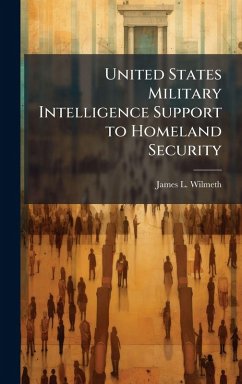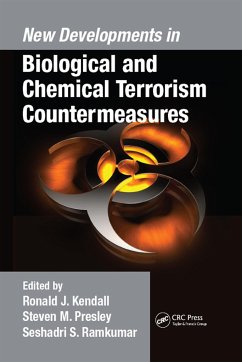
Introduction to Homeland Defense and Defense Support of Civil Authorities (Dsca)
The U.S. Military's Role to Support and Defend
Herausgeber: Tussing, Bert B; McCreight, Robert
Versandkostenfrei!
Versandfertig in über 4 Wochen
138,99 €
inkl. MwSt.
Weitere Ausgaben:

PAYBACK Punkte
69 °P sammeln!
The application of our armed forces within the states and territories of the United States is far from intuitive. The challenges of defending the country against assaults within the homeland are much more complex than engaging our enemies on foreign soil. Likewise, the introduction of the military in responding to domestic emergencies is channeled by authorities and restrictions reflective of an American ethos that will always hold those forces as the servants of the people, never their overseers. Introduction to Homeland Defense and Defense Support of Civil Authorities (DSCA): The U.S. Milita...
The application of our armed forces within the states and territories of the United States is far from intuitive. The challenges of defending the country against assaults within the homeland are much more complex than engaging our enemies on foreign soil. Likewise, the introduction of the military in responding to domestic emergencies is channeled by authorities and restrictions reflective of an American ethos that will always hold those forces as the servants of the people, never their overseers. Introduction to Homeland Defense and Defense Support of Civil Authorities (DSCA): The U.S. Military's Role to Support and Defend examines the requirements and regulations that guide the utilization of our forces in the domestic environment.













